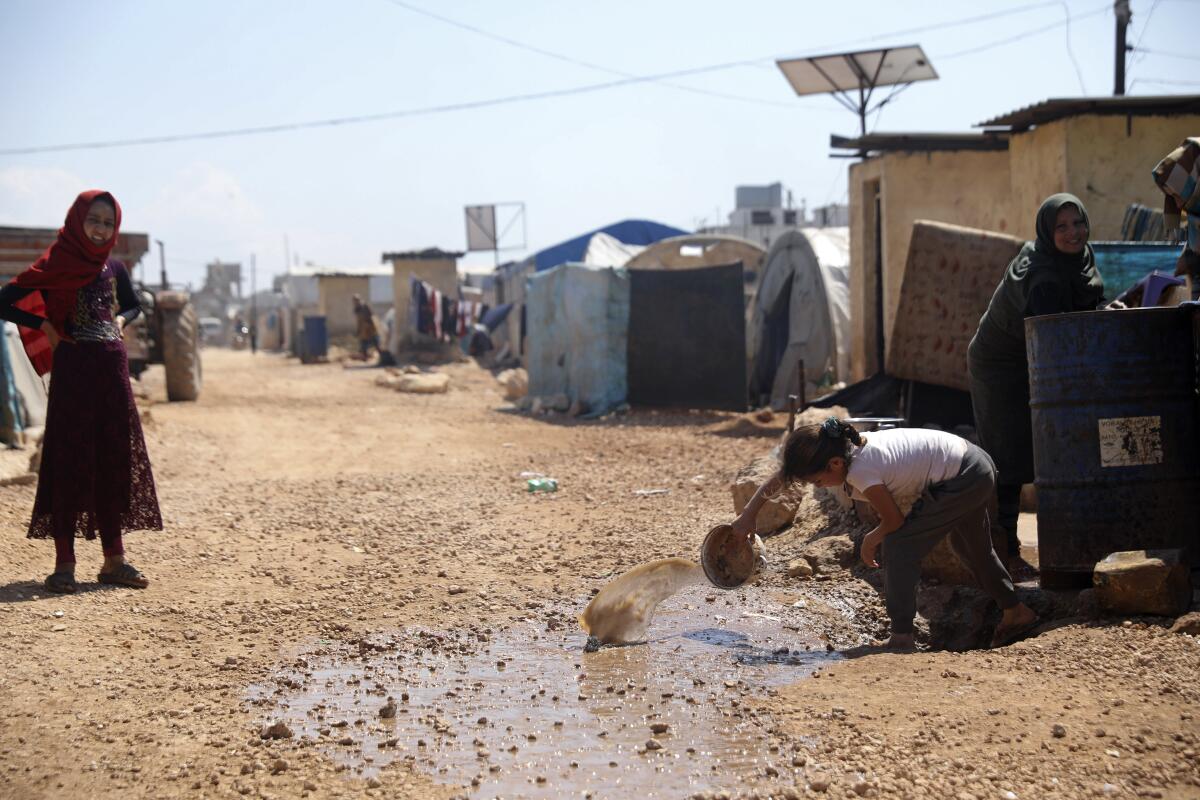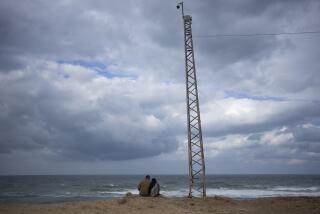Donors urged to dig deep as economic chaos and coronavirus hit Syria

- Share via
BRUSSELS — Aid organizations on Monday made a plea for world leaders to boost financial support to conflict-torn Syria, where around 11 million people are in need of humanitarian assistance, on the eve of a major donor conference hosted by the European Union.
The conflict has killed more than 400,000 people and sparked a refugee exodus that has destabilized Syria’s neighbors and hit Europe, but now economic chaos and the spread of the coronavirus are weighing even more heavily on its long-suffering people.
Syria’s struggling economy has sharply deteriorated recently. Prices have soared, and the national currency, the Syrian pound, has collapsed, partly due to fears that international sanctions will further isolate the country. Farmers desperately need funds to prepare next year’s crops.
“Syrians who have already endured almost a decade of war and displacement are now facing unprecedented levels of hunger, leaving millions of people acutely vulnerable to COVID-19,” the aid agencies said in a joint statement.
“A staggering 9.3 million Syrians are now going to sleep hungry, and more than another 2 million are at risk of a similar fate,” said Oxfam, Humanity & Inclusion, CARE International, World Vision International, International Rescue Committee, Mercy Corps, and the Norwegian Refugee Council.
Perhaps wary of the state of coronavirus-ravaged national coffers, organizers have underlined that they have no fixed pledging target for Tuesday’s donor conference.
In a report last week, the EU said that in 2019 donors contributed 8.9 billion euros ($10 billion) in grants to Turkey, Egypt, Iraq, Jordan, Lebanon and Syria. The United Nations currently requires about $3.8 billion for its Syria-related work.
It will be the eighth annual Syria pledging conference and the fourth hosted by the EU, which estimates that it had donated around 20 billion euros ($23 billion) to Syria and the region over the years. Around 60 countries, including the U.S., key U.N. agencies and others involved in the conflict are expected to take part.
Beyond its economic impact, the coronavirus also has forced the conference to be held online. The event is usually an important opportunity for officials to meet on the sidelines to discuss thorny issues and resolve problems. Officials worry that the virtual format may reduce the conference to a number-crunching exercise.
More to Read
Sign up for Essential California
The most important California stories and recommendations in your inbox every morning.
You may occasionally receive promotional content from the Los Angeles Times.










